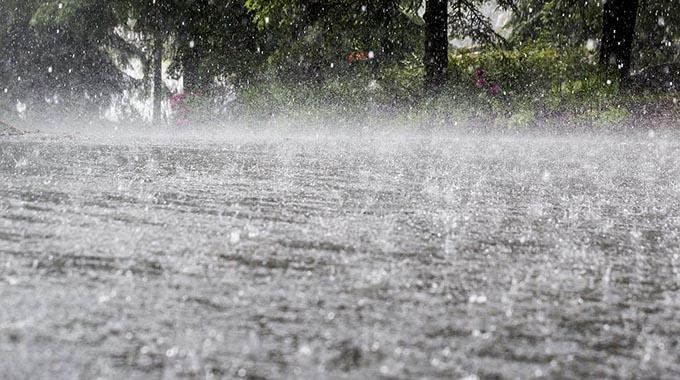News / National
Heavy rains leave six families homeless in Nkayi District
21 Nov 2024 at 19:10hrs |
0 Views

Six families in Mkhanyiso Village under Chief Madliwa are homeless after heavy rains caused extensive flooding on Monday, destroying homes, crops, and livestock in Nkayi District, Matabeleland North Province.
The torrential downpour, measuring 48mm, wreaked havoc in the low-lying areas of Ward 2, leaving a trail of destruction in its wake.
Nkayi District Development Coordinator, Ms. Matilda Mlotshwa, who chairs the district civil protection committee, confirmed the disaster.
"On 18 November, Mkhanyiso Village experienced over an hour of heavy rains, resulting in severe flooding. Twenty-five households were affected, with three severely impacted. Their homes, livestock, and fields were completely destroyed," she said.
In total, 136 people have been affected, with six families displaced. The floods damaged 75 hectares of freshly planted crops, swept away 10 chickens and four turkeys, and destroyed six houses.
Ms. Mlotshwa attributed the disaster to the sandy soils in the area, which are highly prone to erosion during heavy rains, and the use of dagga - a traditional but vulnerable building material - for constructing homes.
She highlighted the need for proactive measures to mitigate the impact of such disasters.
"We recommend relocating affected families to higher ground. There is also an urgent need to create contour ridges and educate communities on sustainable farming techniques, such as cultivating across slopes. Villagers should also be encouraged to use durable building materials to minimize future damage," she said.
This flooding incident follows a series of weather-related challenges for Nkayi District. Earlier this year, strong winds damaged 14 schools, causing losses of over USD $10,000 and disrupting learning.
Local authorities and humanitarian agencies are now working on providing relief to the affected families while exploring long-term solutions to prevent future incidents.
The torrential downpour, measuring 48mm, wreaked havoc in the low-lying areas of Ward 2, leaving a trail of destruction in its wake.
Nkayi District Development Coordinator, Ms. Matilda Mlotshwa, who chairs the district civil protection committee, confirmed the disaster.
"On 18 November, Mkhanyiso Village experienced over an hour of heavy rains, resulting in severe flooding. Twenty-five households were affected, with three severely impacted. Their homes, livestock, and fields were completely destroyed," she said.
In total, 136 people have been affected, with six families displaced. The floods damaged 75 hectares of freshly planted crops, swept away 10 chickens and four turkeys, and destroyed six houses.
Ms. Mlotshwa attributed the disaster to the sandy soils in the area, which are highly prone to erosion during heavy rains, and the use of dagga - a traditional but vulnerable building material - for constructing homes.
She highlighted the need for proactive measures to mitigate the impact of such disasters.
"We recommend relocating affected families to higher ground. There is also an urgent need to create contour ridges and educate communities on sustainable farming techniques, such as cultivating across slopes. Villagers should also be encouraged to use durable building materials to minimize future damage," she said.
This flooding incident follows a series of weather-related challenges for Nkayi District. Earlier this year, strong winds damaged 14 schools, causing losses of over USD $10,000 and disrupting learning.
Local authorities and humanitarian agencies are now working on providing relief to the affected families while exploring long-term solutions to prevent future incidents.
Source - The Chronicle
Join the discussion
Loading comments…



























